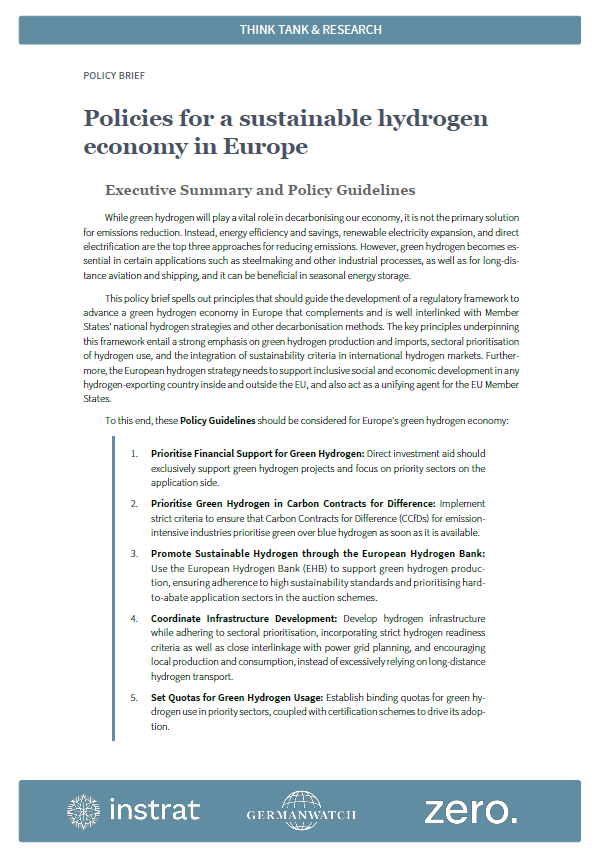Green(ing) H2
Engaging civil society in the process of making European hydrogen infrastructure green, fair, and sustainable.
Energy Policy Energy Transition and Climate-Neutral Buildings Renewable Energy

Project info
Germany, Poland, Portugal
10/21 - 09/23
Civil society, Non-governmental organisations, Private sector, National governments, Associations
284,999.20 €
Contact info
Rita Prates
- Germanwatch e.V.
- Instrat Foundation
Background
Hydrogen (H2) is projected to play a key role in a future climate-neutral society, enabling emission-free transport, heating, and industrial processes as well as seasonal energy storage. However, hydrogen is not per se climate-neutral. If not designed with a focus on sustainability, both its production and its logistics bear the danger of dependency on fossil fuels as well as of competition for water and renewable energy. In Europe, the policy debates on hydrogen have been dominated by representatives from the energy industry, who have not adequately articulated these dangers. An informed and engaged civil society can contribute to the respective policy debates and hold decision makers accountable, ensuring that further advancement of hydrogen strategies focuses on truly sustainable hydrogen.

Project
The project team targets organised civil society – such as NGOs, think tanks and associations – on EU level as well as in Poland, Germany, and Portugal as countries which hold key roles in advancing the hydrogen industry in Europe. To empower civil society to actively engage in the hydrogen debate, the project team focuses on two activities. The first step is to build a cross-European network of organised civil society actors who are interested or involved in green(ing) hydrogen at the European and national levels, encouraging and facilitating exchange of knowledge and perspectives. This network constitutes the basis for the second step, which is to – as a collective – develop guidelines for policy makers. These guidelines aim to propose solutions for designing sustainable hydrogen markets and infrastructures. The project members disseminate these guidelines among civil society organisations and among government ministries so that the guidelines support the policy processes that pave the way for the further advancement of truly net-carbon free hydrogen. Through its efforts, the project team contributes to unleashing the full potential of green hydrogen for climate neutrality.
Last update: July 2024

